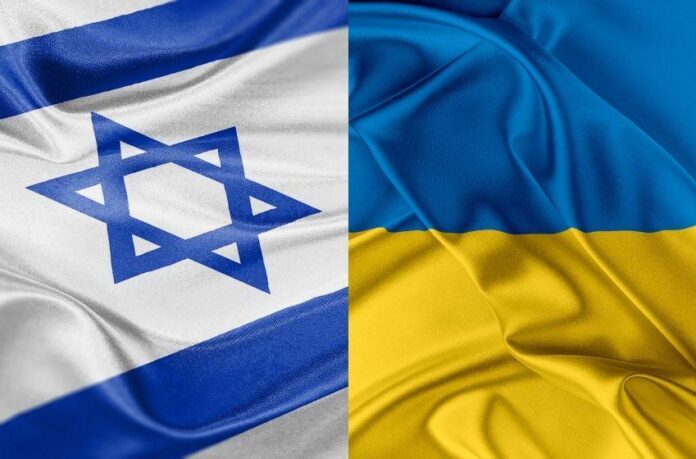The ongoing conflict in Gaza, marked by Israeli military operations and the devastating humanitarian impact on Palestinian civilians, has once again highlighted the role of Western media and politicians in shaping global narratives. Simultaneously, the resurgence of attention on Ukraine, particularly in the context of its war with Russia, nonsense in the White House and a European love in, has raised questions about the priorities and biases inherent in Western discourse. A dialectical analysis of this situation reveals the contradictions, power dynamics, and ideological underpinnings that drive these shifts in focus.
Thesis: Western Media’s Focus on Gaza
The Israeli-Palestinian conflict, particularly the situation in Gaza, has long been a flashpoint for global attention. The recent escalation, characterised by Israeli airstrikes, ground operations, and the widespread destruction of infrastructure, has resulted in significant civilian casualties and a deepening humanitarian crisis. Western media, at times, has provided extensive coverage of these events, highlighting the plight of Palestinians and criticising Israel’s actions as disproportionate or in violation of international law. This focus aligns with a broader narrative of human rights advocacy and the condemnation of state violence against vulnerable populations.
However, this coverage is often inconsistent and subject to political pressures. While some outlets have been vocal in their criticism of Israel, others have framed the conflict in ways that justify or downplay Israeli actions, emphasising Israel’s right to self-defence against groups like Hamas. This duality reflects the complex interplay of geopolitical alliances, historical contexts, and domestic political considerations in Western countries and the corporate media.
Antithesis: The Shift Back to Ukraine
In recent weeks, Western media and political leaders have increasingly redirected their attention back to Ukraine, particularly in light of Donald Trump taking office and the broader implications for European security. The war in Ukraine is framed as a struggle for democracy and sovereignty against authoritarian expansionism, a narrative that is used conveniently by political leaders and the corporate media from time to time. This shift in focus is not merely coincidental but reflects the strategic priorities of Western powers, particularly the United States and European Union, who view Ukraine as a critical front in their geopolitical and historical rivalry with Russia.
The emphasis on Ukraine also serves to consolidate a historical Western unity that reinforces the moral and political legitimacy of NATO and its allies. By contrast, the Israeli-Palestinian conflict, with its intractable history and moral ambiguities, is often seen as a divisive issue that complicates Western cohesion. Thus, the refocusing on Ukraine can be understood as a strategic realignment of priorities, driven by both ideological and pragmatic considerations.
Synthesis: Contradictions and Power Dynamics
The dialectical tension between the focus on Gaza and the shift to Ukraine reveals deeper contradictions in Western media and political discourse. On one hand, there is a professed commitment to human rights, international law, and the protection of vulnerable populations. On the other hand, there is a clear hierarchy of concern, where some conflicts are prioritised over others based on their alignment with Western interests.
This hierarchy is not merely a matter of resource allocation or editorial choice but reflects the structural biases inherent in the global media landscape. Western media, as an extension of capitalist and imperialist systems, tends to amplify narratives that reinforce the status quo and marginalise those that challenge it. The Israeli-Palestinian conflict, with its potential to expose the contradictions of Western support for Israel, is often sidelined in favour of issues that can be more easily framed within a Manichean worldview, such as the war in Ukraine.
Moreover, the shifting focus underscores the role of politicians in shaping media agendas. Western leaders, particularly in the US and UK, have a vested interest in maintaining their geopolitical dominance and ensuring public support for their foreign policy objectives. By emphasising Ukraine, they can rally domestic and international opinion around a clear enemy (Russia) and a noble cause (defending democracy), while avoiding the more contentious and morally complex issues surrounding Gaza.
Towards a Critical Understanding
In summary, the dialectical analysis of the shifting media focus from Gaza to Ukraine reveals the interplay of power, ideology, and narrative control in shaping public perception. While the plight of Palestinians in Gaza remains a pressing humanitarian issue, it is often overshadowed by conflicts that align more closely with Western strategic interests. This dynamic not only perpetuates inequality in global attention but also undermines the possibility of a just and equitable resolution to long-standing conflicts.
To move beyond this impasse, it is essential to critically examine the structures and ideologies that govern media coverage and political discourse. By challenging the hierarchies of concern and amplifying marginalised voices, we can begin to address the root causes of these conflicts and work towards a more inclusive and just global order.







